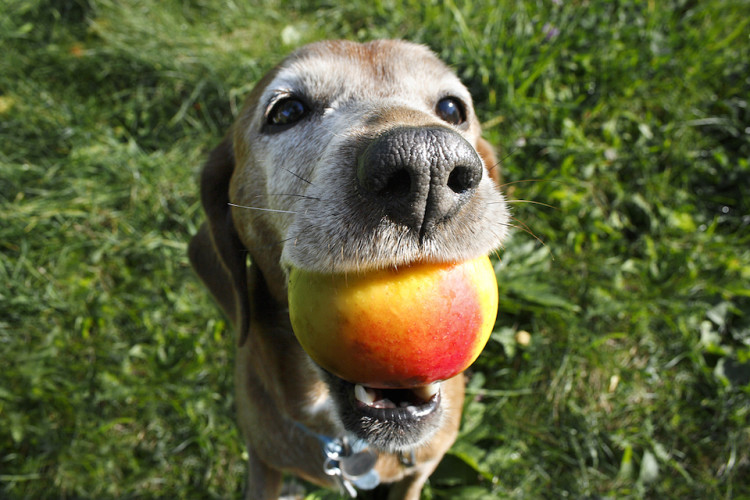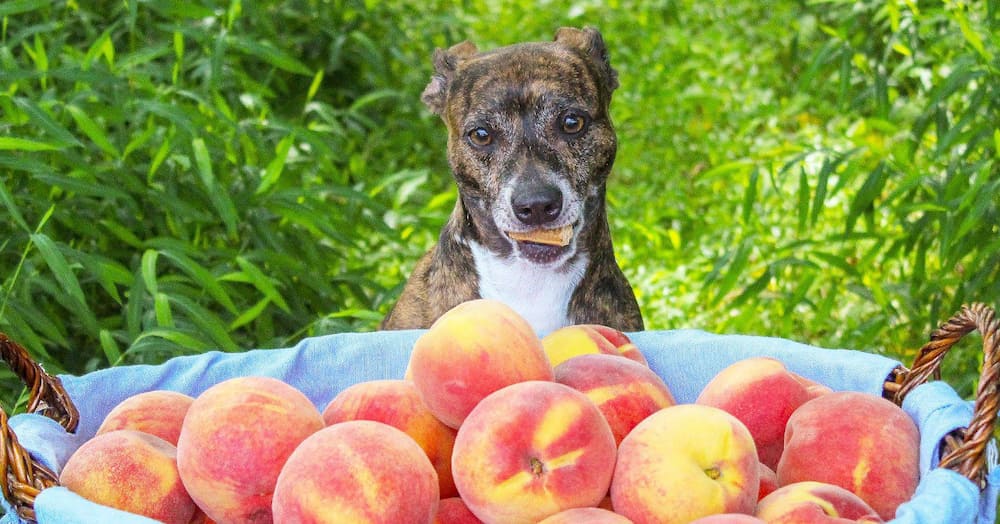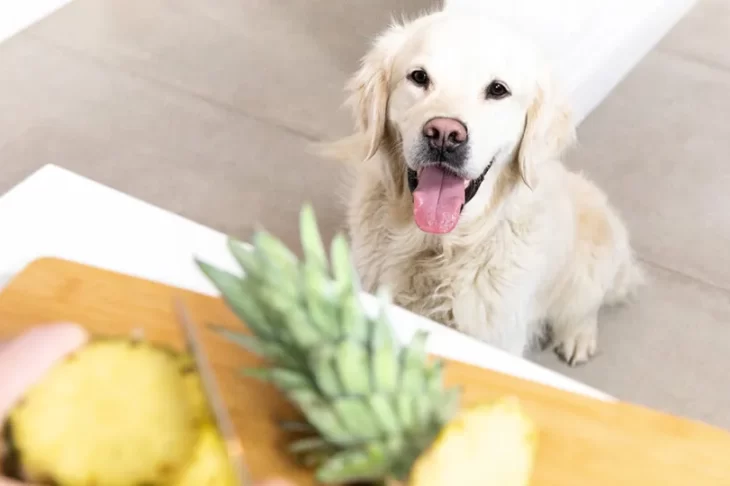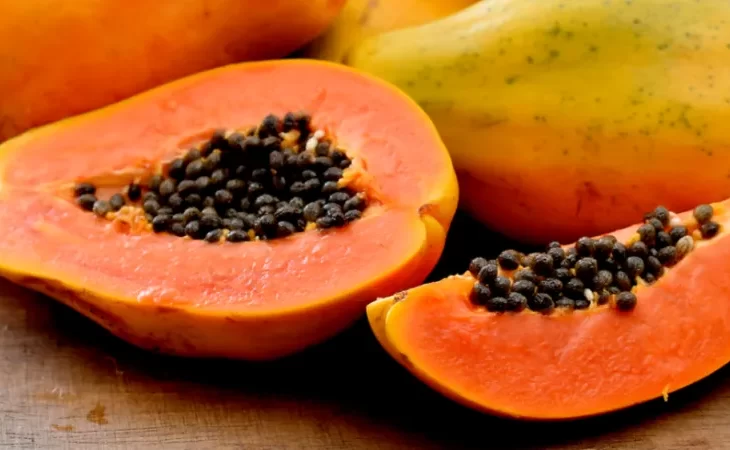
Can Dogs Eat Peaches? Here’s What You Want To Know
Dogs can eat peaches, but only if you properly prepare them, is the answer to the question. For peace of mind, you can treat your dog to this summer fruit by understanding which parts of a peach he can and cannot consume.
Can dogs eat peaches?
Yes, dogs can eat peaches. In actuality, this common summer fruit is a powerhouse of vitamins, including A and C, antioxidants, and others. It’s best to follow the 90/10 rule because they are also higher in sugar and fiber than other fruits and berries. Accordingly, your dog should consume 90% of his daily caloric intake from his regular dog food and 10% from treats.
Please read on.
Table of Contents
Can Dogs Eat Peaches?
One of the great summertime pleasures is eating a fresh, juicy peach. If you’re wondering if you can give this delectable treat to your dog, the answer is yes, but with a few restrictions. Because they are carnivores, dogs don’t really need to eat fruit in their diets. They have a different digestive system than humans, so some foods that are okay for humans are not okay for dogs.
Peaches are a fantastic source of fiber and vitamin A. The flesh of a peach, when cut up into small pieces, is safe for your dog. Peaches can, however, upset his stomach, most frequently in the form of brief diarrhea, just like any food that isn’t a staple in his diet.
Avoid feeding your dog peaches that have been canned or preserved. They are loaded with sugar and may also be preserved or sweetened with artificial ingredients, which can seriously upset your dog’s digestive system.
Pesticides that have the potential to be toxic are used to treat the majority of commercial fruit. Prior to feeding peaches to your dog or yourself, make sure to wash them.
The peach pit, also known as the stone, poses the greatest threat. The sugar-cyanide substance amygdalin is found in peach stones. Why chance it with anything that could be toxic, even though it would take a dog eating several peach pits to be harmed? In addition, the pit poses some other risks. It may become stuck in your dog’s throat if he tries to eat it whole. And as anyone who has ever pitted a peach is aware, the pit has a rough, serrated surface that can be abrasive and irritate the small intestine.
Finally, be aware that even the stems and leaves of peach trees, as well as those you purchase from a farmer’s market or orchard, contain cyanide.
Are Peaches Healthy For dogs?
The flesh of the peach is actually chock full of nutrients that are excellent for your dog.
“Peaches are rich in vitamins A and C,” Telling The Dodo was Dr. Cruz. “They also contain iron, choline, potassium, magnesium, phosphorus, manganese, zinc, copper, niacin, folate, vitamins E, K, and other minerals.”
So, there are benefits to occasionally letting your dog nibble on some peach flesh.
Do Dogs Ever Get Sick From Peaches?
If you follow the 90/10 rule, you shouldn’t have any issues with diarrhea or upset stomach from eating too many high-sugar, high-fiber treats. Limiting your dog’s sugar intake is a good idea because too much sugar can cause diabetes, obesity, and cavities.
The peach pit, also known as a stone, contains trace amounts of cyanide, which is poisonous to dogs, in addition to being high in sugar. The cyanide is also present in the stem and leaves. The stone can choke someone and, if swallowed, can obstruct the digestive tract. In addition, it is abrasive and rough, which can harm the intestines and esophagus.
See more about
How Are Pears Harmful To Dogs?
However, if you do choose to feed your dog peaches, you must be extremely careful to avoid giving them certain fruit parts.
“Some fruit needs to be given with caution, and this includes peaches and cherries, or any fruit that has a hard central stone (pit),” Dr. Cruz said.
Peach Pits And Dogs
Because they contain cyanide, peach pits can be harmful.
“Peaches, cherries, plums, nectarines and mangoes all contain a naturally occurring form of cyanide,” Dr. Cruz said.
This will provide some defense against hungry animals for the fruit (as well as the tree it came from).
“Studies have shown that the pit of a peach contains more of this toxin than cherries,” Dr. Cruz explained. “More toxin is released when the pit is chewed.”
Therefore, it should go without saying that your dog shouldn’t nibble on a peach that hasn’t been pitted.
You should also avoid the stems and leaves of peaches because they are cyanide-filled.
If your dog accidentally eats a peach pit, look out for signs of cyanide poisoning, like:
- Vomiting
- Difficulty breathing
- Skin irritation
- Coma
Peach pits could cause poisoning, choking, and even intestinal blockage in addition to being a potential choking hazard.
“Larger pits such as those found in peaches, apricots and nectarines can become stuck in their throat, stomach and intestines,” Dr. Cruz said. “Before a pet exhibits unusual behavior, a pit may have been consumed days earlier.'”
Observe how your dog behaves. Whether you saw him swallow a peach pit or he snuck one behind your back, you’re going to want to reach out to your vet if you notice signs of a gastrointestinal obstruction, which include:
- Lack of appetite
- Vomiting
- Diarrhea
- Constipation
It’s crucial to see your veterinarian as soon as possible because digestive obstruction can be extremely serious.
“A pit can cause an obstruction in the intestines and cause the area to break down, releasing bacteria into the abdominal cavity [and] causing a life-threatening infection (septicemia),” Dr. Cruz explained.

Peach Fuzz, What About It?
“The fuzz is not problematic, but some dogs may have a mild oral allergic reaction,” Dr. Cruz said.
There are some signs to look out for that could signify your dog is having an allergic reaction if he happens to snack on some peach skin.
“The reaction is likely to be mild, but the pet may have excessive salivation, rub at its face, make multiple smacking motions with its mouth or resist eating,” Dr. Cruz explained.
How Should You Feed Peaches To Your Dog?
Any type of human food should never be given to your dog without first consulting a veterinarian. It is best to check before giving your dog peaches or any other food because some dogs have medical conditions that peaches or other foods might exacerbate. They can also advise you on how many servings of peaches are appropriate to give your dog.
Once the vet has given the all-clear, be sure to choose and prepare fresh peaches that are free of rot and mold. They should be washed thoroughly, cut into manageable pieces, and the pits and any remaining stems or leaves should be taken off.
The fruit can be chopped into small pieces and used as a training incentive, mixed with other foods for a sweet surprise, or blended with other nutritious fruits to make a fruit salad or smoothie. Please consult your veterinarian before giving your dog any additional human fruits or foods.




